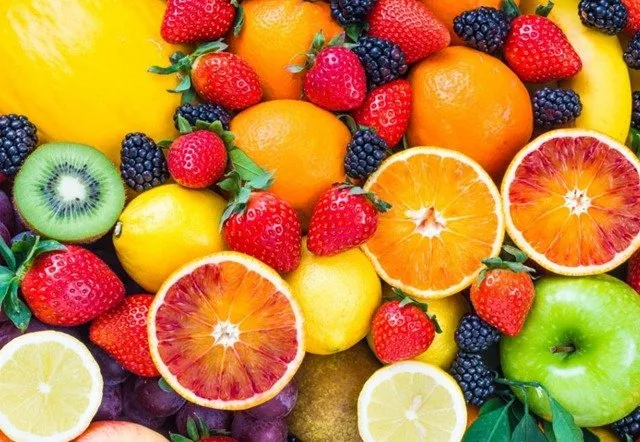That fruit has sugar is a reality, but it is much said about whether its high consumption is harmful and especially if people with diabetes should avoid their consumption, precisely by their sugar content.
To clarify once and for all this doubt we answer the following question: Can you eat fruit if I have diabetes?
fruit sugar
The first thing to clarify is that although fruits have sugar, when we consume the piece of whole fruit we are not consuming free sugars as defined by WHO:
... monosaccharides and disaccharides added to food by manufacturers, chefs or consumers, as well as the sugars present naturally in honey, syrups, fruit juices and fruit juice concentrates.
Free or added sugars are those that we should reduce if we want to take care of health to a level of less than 10% of daily calories and ideally to 5% of the total energy of the day.
These sugars are those that are easily absorbed, raise blood glucose and as a consequence the release of insulin and therefore are associated with inflammatory processes, more abdominal fat and a variety of associated diseases if their intake is regular and excessive.
However, although fruit juices are free sugars, the entire fruit does not contain the same type of sugars, but it is natural fructose accompanied by fiber, vitamins, minerals and antioxidants several that benefit health and that prevent rapid absorptionOf its hydrates therefore, fresh and whole fruit is not considered a source of sugar harmful to the body.
Fresh and whole fruit is not considered a source of sugar harmful to the body
Fruit and beaten juices (still homemade) do have easy absorption or assimilation hydrates and therefore should be avoided in our usual diet if we wantWith sugar inside.
In fact, the consumption of fruit juices was associated in a study published in 2015 to a higher incidence of diabetes and therefore, its use of sugary drinks is advised, as they are not a recommended alternative to drink them in a regular basis and inappreciable amounts.
The fruit, suitable for diabetics?
As we have said, one thing is a fruit juice and a very different one is a piece of whole fruit, since the latter does not generate glucose peaks, it is not easily digested and satiated the organism because it requires chewing and provides fiber in appreciable quantities, evenIt can help us calm sweetness healthy.
Therefore, neither the fruit fattens nor is prohibited in diabetics, but on the contrary, an investigation published in Diabetes Care points out that greater fruits consumption was linked to a lower risk of diabetes, while adding fruit juices produces theopposite effect.
This coincides with what Harvard scientists found in a great magnitude study where it is indicated that any whole fruit, even the grapes that are specimens with high sugar content, are associated with less risk of diabetes, while the juices increase the probabilitiesof suffering the disease.
Thus, it is clear that the whole fruit is not harmful to diabetes but that unlike what many think, their consumption can be very helpful to prevent and control the disease.And this is stated by the American Diabetes Association in a document published this year in which he advises:
Both children and adults with diabetes are advised to reduce refined carbohydrates and added sugars and instead focus on vegetable carbohydrates,legumes, fruits, dairy (milk and yogurt) and whole grains
Then, the doubt clarified: if you have diabetes or want to prevent the disease, it is possible and even advisable to consume whole fruit daily, but let's not forget that a fruit juice is not equivalent to a whole fruit, but quite the opposite.
Bibliography consulted |BMJ 2015;351 DOI: Link (Published 21 July 2015);Diabetes Care 2008 Jul;31 (7): 1311-1317. Link 2013;347 DOI: Link (Published 29 August 2013).



